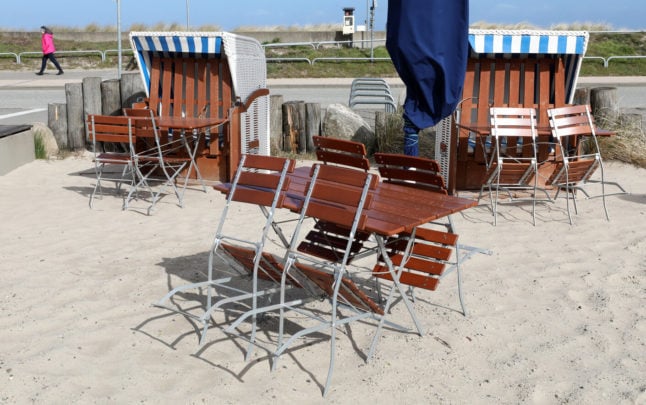With Easter less than a fortnight a way, many of us want to know whether we can plan a short break. The draft lockdown agreement contains some clues.
Should we expect a special Easter rule?
Maybe.
At Christmas, the 16 German states made special exemptions to allow families to meet in small groups despite the fact that the country was at the peak of the autumn wave of coronavirus infections.
The importance of the religious holiday to German society was highlighted as the reason for creating this exemption.
Easter doesn’t play such a central role in family life as Christmas in Germany, as it is traditionally a time when one goes on holiday.
Nonetheless, a leaked proposal by the Social Democrat (SPD)-led states makes clear that there will be discussions on how to facilitate respite during the four-day Easter weekend, which starts on Friday April 2nd.
Stay in your state
The proposal describes a “limited contact holiday” in which people would be able to stay in holiday homes or caravans within their own federal state. A condition for a holiday let opening is that it can provide toilets for a single household.
Short term rentals and hotels have been closed to everyone except business guests since November.
The proposal has nonetheless been put in parenthesis, meaning it isn’t likely to be the bridge the SPD are going to die on in Monday’s talks.
Politicians from Angela Merkel’s CDU party have already voiced scepticism at the proposal as they believe it would face problems in court. A similar attempt to limit overnight stays to people from within a federal state was overturned by several courts in the autumn.
Even in the SPD, there are those who don’t want to encourage travel at Easter.
The vice-Chancellor Olaf Scholz said at the weekend that “from my point of view, there had better not be a big wave of travel at Easter. We simply cannot afford that in the current situation”
“If too many people were to take Easter holidays on a large scale, it would endanger the summer holidays for all of us,” Scholz told Bild am Sonntag newspaper.
It is almost certain that the new agreement will continue to contain an appeal to people to “avoid all but necessary travel at home and abroad.”
It is unclear whether visiting family in another federal state over Easter will be explicitly discouraged. This clause can’t be legally enforced, but rather is a recommendation.
Escape to Mallorca?
The first budget airlines started flying to Mallorca at the weekend, after lower case numbers there led the Foreign Ministry to remove the Balearic islands from its list of high risk countries.
The fact that people are going on holiday abroad while cases rise again so quickly has caused considerable controversy.
A topic of hot debate at Monday’s talks will be whether to insist that people quarantine on returning from the Spanish islands. This proposal was first made by that influential Bavarian state leader Markus Söder.
READ MORE: German states seek Covid restrictions extension into April as case rise continues
The SPD paper not explicit about what to do with tourists coming home from Mallorca. It states vaguely that “the emergence of various coronavirus variants and their global spread have demonstrated the need to continue to limit cross-border travel to the absolute minimum necessary.”
But another draft of the agreement, this one directly out of Merkel’s office, states that people arriving from abroad would have to take a PCR test and go into quarantine, regardless of the infection scenario in the country they have arrived from. But that point is in parentheses, meaning it is not guaranteed to make it into the final proposal.
Tourism industry upset
The German tourism industry says that mandatory testing for people arriving from low risks regions would put needless burden on health authorities.
The German Travel Association (DRV) points out that the 7-day incidence on Mallorca is currently less than 20, and strict regulations apply there. “When returning to Germany, there is no increased risk of infecting others, but rather a greatly reduced one,” DRV boss Norbert Fiebig said.
Marek Andryszak, managing director of TUI Germany, also believes that the dangers of travel to Mallorca have been exaggerated.
“Mallorca is in demand, but not overcrowded,” he said. “Of the 1,000 hotels open in high summer, not even 10 percent will be available at Easter.”



 Please whitelist us to continue reading.
Please whitelist us to continue reading.
Member comments